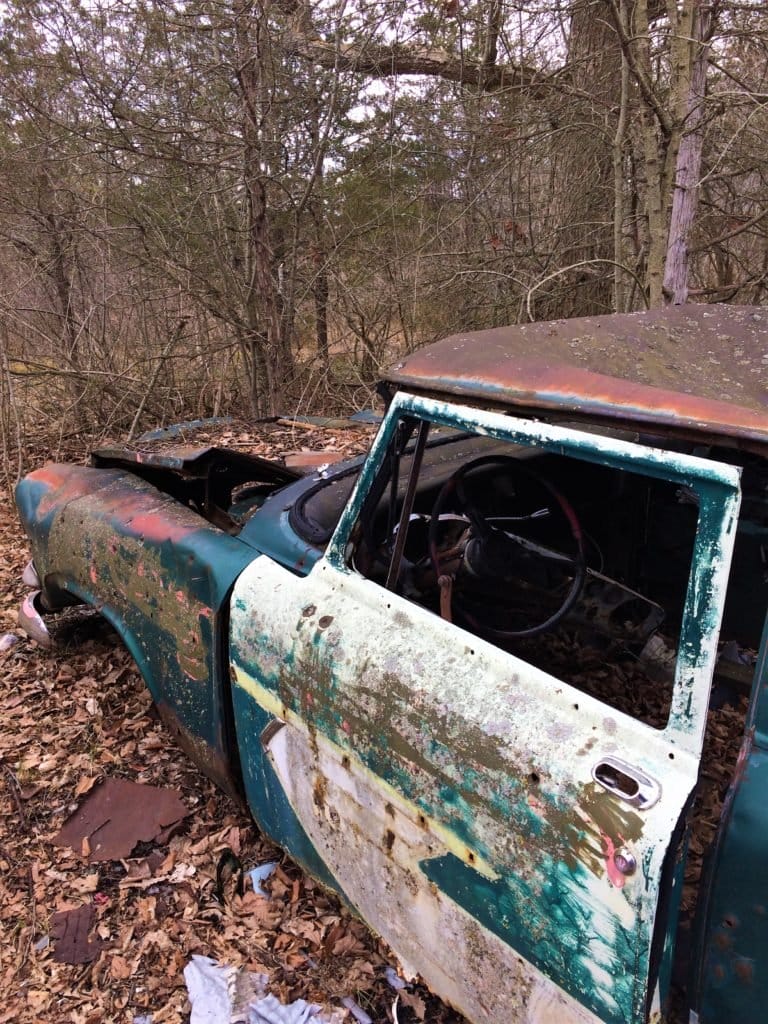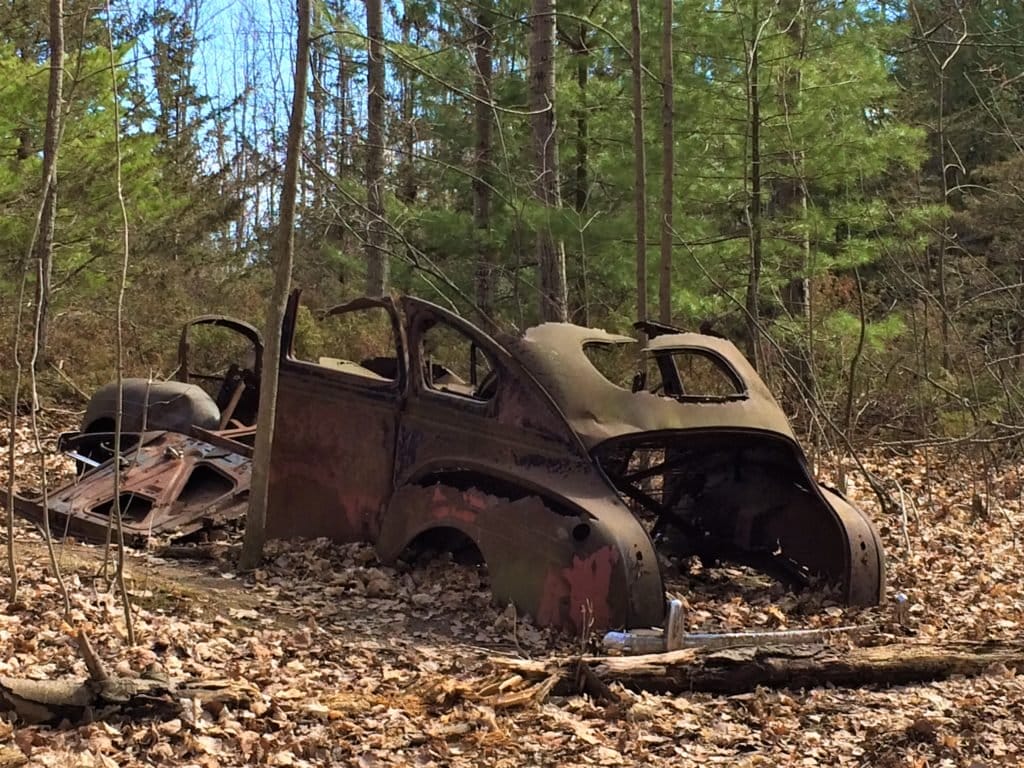July 2020 | nonfiction
Some remembered the final crackle of radio transmission like campfire. Others, the explosion over the Everglades. The chrysanthemum of combustibles: orange and white and red at the edges of the clouds. The terrific noise that had no echo. Some insist to themselves the travelers died of oxygen deprivation, as in falling asleep as when their mother or father read that long bedtime story, never completing it, tucking them in as they drifted into sleep.
Some will remember the sound of riveted seams wrenched apart. Some might contemplate the ease at which falling metal crumbles in collision with an immoveable object, such as the earth. Airplane parts folded like sodden origami underfoot.
Numbers that accompany the crash: the barometric pressure as a thunderstorm builds, the velocity of the aircraft in descent, the latitude and longitude of the crash site, the few ounces of fuel left in the helicopter when the wreckage is discovered.
What came to rest, charred and indiscernible––a precipitation of sorts: women’s embroidered handbags, men’s hats punctuated with guinea hen feathers: key limes, Miccosukee patchwork, contraband Cuban cigars. Within twisted luggage, clothes folded meticulously as a nun’s hands in prayer.
In years to come, remembered at the oddest moments: set in the nestlike hummock of sawgrass growing in brackish water, a perfectly filled and intact plastic bag with 50 shimmering tropical fish, some orange, some white, some red at the edges.
Catherine Sutthoff Slaton
Catherine Sutthoff Slaton is a West Coast writer graduated from the University of Washington with a degree in English/Creative Writing. In July 2017, she traded in her REI raincoat for a longer REI raincoat and her Doc Martens for a pair of ultrahigh Bogs and moved from Seattle to the small farming community of Chimacum on Washington’s Olympic Peninsula where in addition to writing she works her bee hives and raises dairy goats. Her poems have been published in Soundings Review (Pushcart nominee), Switched-On Gutenberg, Till, Hummingbird Press, Raven Chronicles, Tupelo, and King County Metro Transit’s Poetry on Buses Series. Her essays have been published in Inkwell, (February 2020), and WORK Literary Journal (Spring 2020). She will also be published in Rumpus, Fall 2020.
July 2020 | poetry
The heart has abdicated feeling.
I have enough to do, all this beating, all this pumping.
Builds a wall to harden the pericardium.
Feels the shearing less.
Knows it is ultimately useless and easily scaled,
the breakthrough scorching.
In the heart’s determined absence,
the digestive track takes up the slack, but can’t stomach it.
Bile, bubbling lava, ire, rise along the esophageal membranes.
What does make it down is hardly digestible,
only present due to the sheer volume of forced feeding.
The small intestine is especially overworked,
separating the pure from the unpure, the true from the untrue,
the useful from the corrupted, too big a job
So nearly all passes on to the large intestine,
which just wants more water.
The lungs, the lungs are crying,
damp or charred,
ash floating, hacking up bits of themselves,
too many fires burning, too many on the edge of the last exhale.
Seeking solace on hard granite,
weep into the mother’s embrace
even as she suffers.
The nervous system is trigger-happy.
The hand tremors unrelenting.
Good time not to have a gun.
The interstitial swamps,
lowdown fluids between/among
everything,
are in the best shape, not frozen, not making off
with the last energy in the treasury.
Steady, slow, tidal,
still taking cues from the moon
but in need of water.
The feet run.
The hands want to strangle.
The spine contorts under jeopardy.
The endocrine system would just like
the right drugs to fuck its brains out.
The mouth and vocal chords,
more inarticulate than not,
garble, gurgle, sputter, spewing
silent.
The central canal, the core,
aligning with the earth’s magma
roaring, roiling
unconcerned with blue, waits
for vents, fissures, some pore, some open vein
to come erupting out
with precision and deadly aim.
But the cells
in their unwavering, egalitarian democracy,
in their trillions, all still work together,
each with its small input, need, job,
praying
in this way to keep the whole alive.
The mind, once tethered by the heart, is disembodied,
wracked in this climate of isolation.
shouting for water.
Karin Spitfire
Karin Spitfire is the author of Standing with Trees and a chapbook “Wild Caught.” Her poem “Liquidation” won the national first place in the 2019 Joe Gouveia Outermost Poetry Contest, sponsored by WOMR, Provincetown. Her poems have appeared in 3 Nations Anthology, You Say. Say, on-line journals, Canary: A Literary Journal of the Environmental Crisis, The Catch: Writings from Downeast, Trivia: Voices of Feminism, and print journals, Off the Coast, The Aurorean, Rootdrinker, Currents, the Journal of Body Mind Centering. “What is to be Offered published in The Kerf, was nominated for a Pushcart Prize. She was the Poet Laureate of Belfast, Me in 2007 & 2008.
July 2020 | poetry
We are lost
in Viagra’d beds,
in sticky, spilled orange sidewalk pop,
in black sidewalk gum,
in sidewalk blood,
in blood cough,
in closing time at McDonald’s.
We are lost
under the weight of breathing.
Our reality show is unwatched.
We are lost alone.
We are lost
under control of blank-heart marketers.
We are directionless, hopeless, homeless,
without peace, untouched, cross-nailed.
Tell me we aren’t.
We count down our two thousand million seconds.
We hear the raw prophesy in our blood pulse.
We know awful solitude.
Listen.
We are lost
far behind the pack,
in the sandstorm, on calmless seas, in ever-dark alleys,
forgotten in our time-out corner,
forgotten on our bassinette, strapped,
ignored in our unworthiness,
unworthy,
unworthy,
unworthy,
turned away from —
after the lights go off, on mean streets
and dream streets and yellow-brick streets,
unvoted for, unselected, unbirthed, untouched.
Enduring, on the road, in ravened embrace.
We are lost
as we hold blooded hands
and keel into the pounding falls.
Exhaling, exhaling, all is exhaling. Then, silence.
We are lost in our SUV, in our Humvee,
on our mountain bike, on foot, wheelchaired,
gurneyed into the operating room,
gurneyed to the basement coolers —
on the armied dark beach,
unable to climb bloody down from our fatal tree,
reaching across the chasm,
in grave and ash and scattered bones.
There is no lost paradise.
We are lost to decay, to rot, to corruption, to death —
from birth.
We are lost as we hold hands.
We are lost
behind the Oak Lawn house,
holding hands
on the bloody grass.
We are lost
as we hold hands
for the walk to the chamber.
We are lost
together
alone.
Patrick T. Reardon
Patrick T. Reardon, a three-time Pushcart Prize nominee, is the author of eight books, including the poetry collection Requiem for David and Faith Stripped to Its Essence, a literary-religious analysis of Shusaku Endo’s novel Silence His poetry has appeared in Silver Birch Press, San Antonio Review, Eclectica, Esthetic Apostle, Ground Fresh Thursday, Literary Orphans, Rhino, Spank the Carp, Main Street Rag, The Write Launch, Meat for Tea, Tipton Poetry Journal, UCity Review, Under a Warm Green Linden and The Write City.





